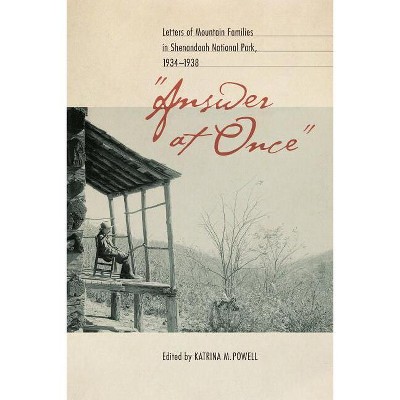About this item
Highlights
- Life outside our nation's big cities comprises a remarkably rich aspect of America--culturally, historically, and physically.
- About the Author: Jack Williams is Emeritus Professor of Landscape Architecture at Auburn University and the author of East 40 Degrees: An Interpretive Atlas (Virginia).
- 320 Pages
- Social Science, Sociology
Description
Book Synopsis
Life outside our nation's big cities comprises a remarkably rich aspect of America--culturally, historically, and physically. Because of the way we move through the country, however--on roads built for maximum expediency--most of us are rarely if ever exposed to these small communities, a trend that is moving these towns dangerously far off the maps of commerce and public consciousness.
In Easy On, Easy Off, Jack Williams takes to the roads of the interstate highway system to explore America's small towns, bringing back diverse examples of both beautiful and neglected places that illustrate how shifts in modern transportation have influenced urban form. Most of these communities are little known beyond their discrete regions, yet their struggles to prosper are universal. Mill towns, county-seat court squares, villages of the Great Plains, mining towns, and California's forgotten Chinese settlements all share similar fates--overshadowed by interstate off-ramp towns and bypassed by high-speed traffic.
Employing more than 150 historic maps and images, unique drawings, and contemporary photographs, Williams convincingly argues that irreversible changes have overtaken the landscapes of small-town America, with each community's economic and social vitality slowly shifting away to other commercial places that attach to our highway interchanges and extrude into strip malls. A tale of success perhaps for the highway system, the more urgent story relayed in Easy On, Easy Off is of the loss of the complex fabric of thousands of small towns that once defined this nation.
Preparation of this volume has been supported by Furthermore: a program of the J. M. Kaplan Fund
Review Quotes
[E]legantly written and produced... Easy on, Easy Off is effective at documenting the standardization of the landscape and the lost places and diversity that resulted from the 'monotonously similar developments spawned by the same limited access that makes highways so secure for high-speed travel.'
-- "Journal of Interdisciplinary History"Williams is passionate about these landscapes and towns, and the descriptions are evocative and often poetic. Documenting these towns, while they still exist, contributes to our understanding of the complex relationships between landscapes and urban form and the aesthetic and social values of towns as cultural artifacts. Reading this book inspires one to head out on the road to see some of these remarkable places, now off the beaten path, before they disintegrate further. Although [Williams] is not optimistic about the future of these towns, the book challenges citizens and professionals to develop strategies to preserve and revitalize these places.
-- "Winterthur Portfolio"Williams is surgical and devastating in the way he has successfully written about an unfolding tragedy, continental in scope, not about the success of the vast highway network but of the loss of a rich cultural heritage. Easy On, Easy Off captures and chronicles a critical moment in the development of America's small-town urban form and history.
[Williams] castigates the interstate highway system throughout the book, but as we read along, these castigations morph into a poetic expression of our own ambivalence to changing times.
--Jane Gillette "Landscape Architecture Magazine "About the Author
Jack Williams is Emeritus Professor of Landscape Architecture at Auburn University and the author of East 40 Degrees: An Interpretive Atlas (Virginia).
Shipping details
Return details
Trending Poetry












